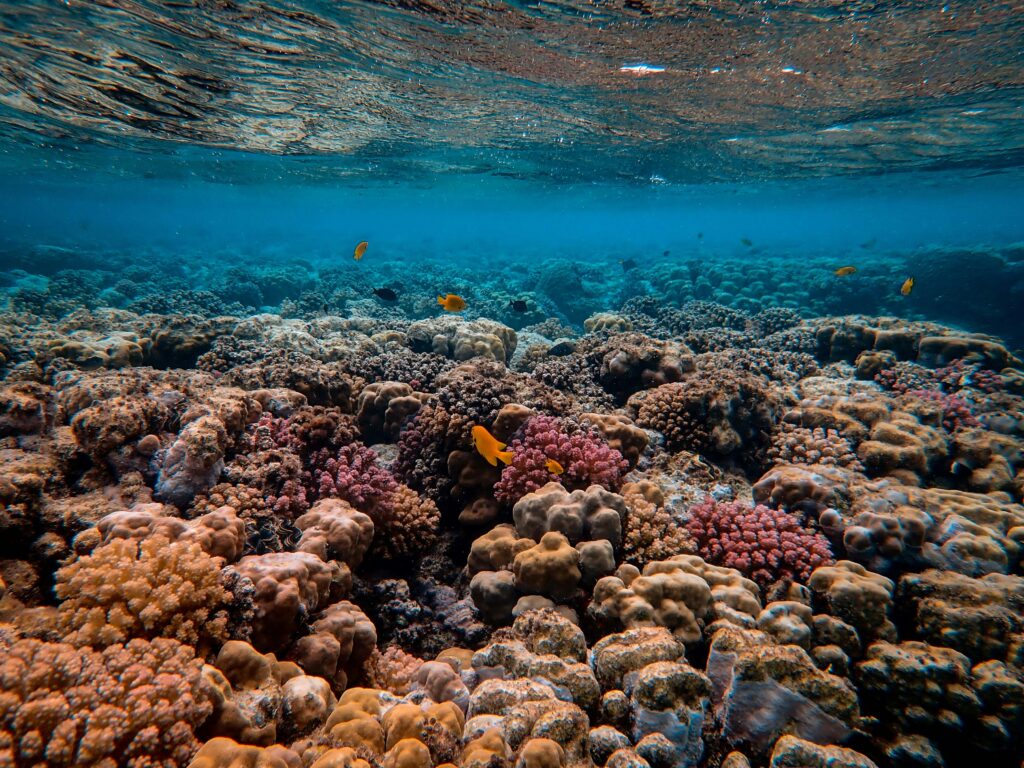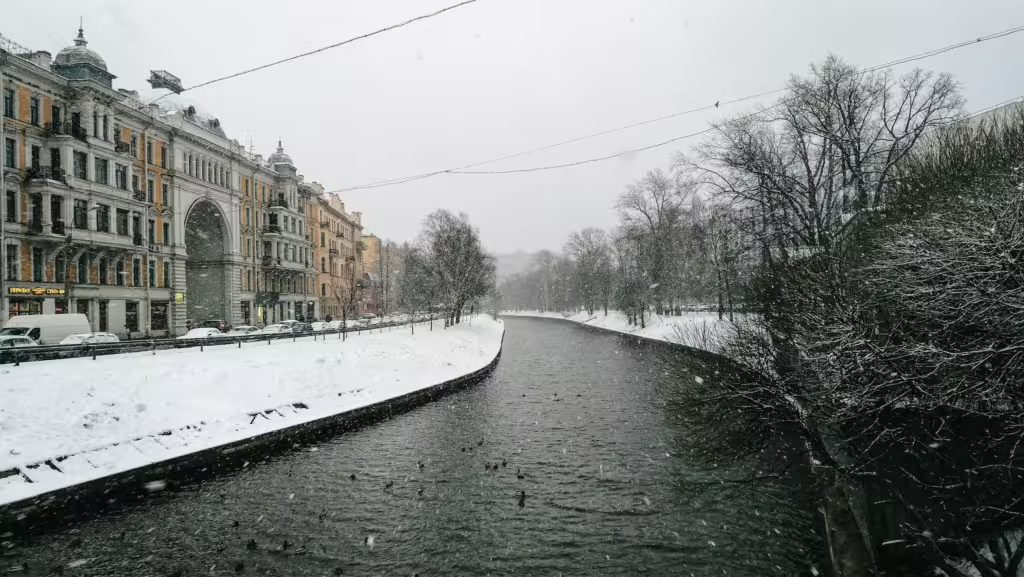Another scary climate story this week says “anthropogenic climate change has been affecting major marine heatwaves… in the past 40 years, marine heatwaves have become considerably longer and more pronounced in all of the world’s oceans”. And as we all know, hot weather only ever does bad things from killing nice birds, animals and coral to spreading nasty algae while melting polar ice. All effects of climate change are bad and so is all the news even if it’s good. But if these heatwaves have been getting worse for 40 years, man-made global warming must have really kicked in 40 years ago. So where are the wildfires and hurricanes that should have been getting more frequent since the 1980s?
The BBC did just report that “Climate change is driving the scale and impact of recent wildfires that have raged in California, say scientists” and these scientists who say also did a study of Australia that the Beeb says “showed that climate change was behind an increase in the frequency and severity of fire weather” there very recently. But look again and the California study claims a significant increase in “fire weather conditions”, by eight days a year, between 1979 and 2019. But as Paul Homewood notes about the California fire study, “why should they start their study in 1979? After all, there is loads of data from earlier years.” Then he produces a chart and says “A look at NOAA’s rainfall graph for California shows just why”, namely that there’s been no overall trend in autumn rain since 1895 but the 1980s were unusually wet so by cherry-picking that starting point you can manufacture one. And of course you can do the same thing for, say, ocean currents. The problem is, you get different starting points each time.
As we noted last week quoting Karl Popper, science proceeds by testing testable hypotheses. On which point this week, again h/t SEPP, we quote Max Planck: “An experiment is a question which science poses to Nature, and a measurement is the recording of Nature’s answer.” So what are we measuring in order to get the answer to the question: “Is man-made CO2 affecting climate?” Changes in climate from 2000 on? From 2016 on? From 1980 on? Any dang thing we like?
What say you, O alarmists? Is it the last decade that’s really different when it comes, say, to Arctic ice? Or ocean heat? Or the last two? Or the last four? Or all of the above?
On that point the marine study kind of hedges. “In its investigations, the Bern team studied satellite measurements of the sea surface temperature between 1981 and 2017. It was found that in the first decade of the study period, 27 major heatwaves occurred which lasted 32 days on average. They reached maximum temperatures of 4.8 degrees Celsius above the long-term average temperature. In the most recent decade to be analyzed, however, 172 major events occurred, lasting an average of 48 days and reaching peaks of 5.5 degrees above the long-term average temperature. The temperatures in the sea usually fluctuate only slightly.”
The latter claim is in fact suspicious since so little reliable sea-surface-temperature data exists prior to 1950; in The Little Ice Age, which we also quoted last week, Brian Fagan speaks blithely of a precipitous drop in sea temperature off the Faroes in the late 17th century that killed off the cod fishery as “the sea surface temperature of the surrounding ocean became 5°C cooler than today.” So there’s a pretty major fluctuation, which means there would have been others as well, none of them recorded. But it’s the former claim that we’re focused on here, because according to this study, even if the really bad stuff hit in the 2010s, the trend blamed unequivocally on humans (“major marine heatwaves have become more than 20 times more frequent due to human influence”) was in full force on James Hansen’s schedule.
There is a sense in which both could be true: the impact of Anthropogenic Global Warming (AGW) could have been ominous in the 1980s, bad in the 1990s, dreadful in the 2000s and apocalyptic in the 2010s. Though if it was, it rather raises the question why evidence continues to suggest that after significant warming from 1970 through the mid-1990s there was a very notable “hiatus” or even cooling from 1998 to 2012. (Not to mention that for the “hottest year ever TM” 2020 is turning in a strange fall so far in Ottawa at any rate. And in International Falls Minnesota, possibly soon to be renamed Frostbite Falls. And the American Rockies.)
There’s also the problem that, as NBC says the UN says, “The world already has warmed nearly 2 degrees (1.1 degrees Celsius) since the late 1800s, and the last five years are hotter than the previous five years, the report said. The speed-up could be temporary, or it might not be.” What speed-up? Of course if temperatures have been rising for 150 years it will be warmer as time passes. But if it’s gradual and constant there’s no obvious crisis, no runaway effect thus far and no obvious point at which we substitute the hand of bad patriarchal man for good Mother Nature. And if it’s accelerating, then there should be a clear distinction between the 1990s and the 2010s.
Note that the distinction might not be clear, except on temperature, if the general claim were that warming brings a variety of effects good and bad. But one point on which alarmists are all but unanimous is that all effects of warming are bad and all bad things are effects of warming. If they threw in the kitchen sink, it would be rusty or full of poison ivy or something.
The bottom line is that we need a kind of Grand Unified Theory of Climate Change that explains when human influence became dominant and how, so that we can compare conditions before that point with conditions afterward and see what has changed and think about why. If man-made climate change brings more hurricanes, tell us after what year, or decade, we should see more hurricanes. If it brings more wildfires, tell us after what year or decade we should see more wildfires. If it brings more sudden changes in ocean temperature… well, you get the idea. Droughts, floods, crop failure, you name it.
The only stipulation is, tell us beforehand what to measure. Consult your theory and make a prediction. Don’t wait until after something has changed and then pretend you predicted it, while ignoring all the predictions that didn’t come to pass. Then we will examine your theory as if it were science.



I am still awaiting an answer from Environment Canada as to the discrepancy between their modelled temperature and actual recorded temperature at my location. They don't seem too interested in responding.
Have commented before on how satellite ocean coverage has ramped up since 2000. And continues to expand. What that means is we see far more short term storms in the Atlantic than we did in the past. And they are naming everything that is seen. So a storm that pops up and dies in 24 hours now becomes a named storm. And they can say that storm activity has doubled in the last 20 years. Well sorta....
I am trying to find out from Australia's BOM the recorded temperatures from 1930-40 1941-54 but only get the massaged numbers, not the ones reported in the media at the time. Why?
I also wonder how is it possible that Australia, Finland,Sweden,USA, Canada, Arctic, Antarctica, Ireland, England and so are warming faster than rest of the world? Don't we need new average for the world otherwise the "science" is absurd.
The BBC report about Australian bushfires is also wrong. There have been greater burn areas in p ast extreme fire seasons. The outcomes of the previous fire experience (Summer 2019-20) were due to poor preparation, negligent land management leaving huge fuel build ups, reduction in forestry meaning that access roads were not maintained or accessible, hampering firefighting efforts, and heavy machinery previously available from forestry and logging organizations were no longer available.
In Australia we also like building fire-vulnerable homes in the midst of our explosively flammable bush while the law prevents land holders clearing around their buildlings as advised by firefighting organisations.
The problem was entirely made by human decisions.
Mark: All those places you listed are mostly on land. The rest of the world is mostly water. Land warms and cools much faster than water, and that's all there is to it.
Propagandists try to make even the very simplest of things appear frightening.